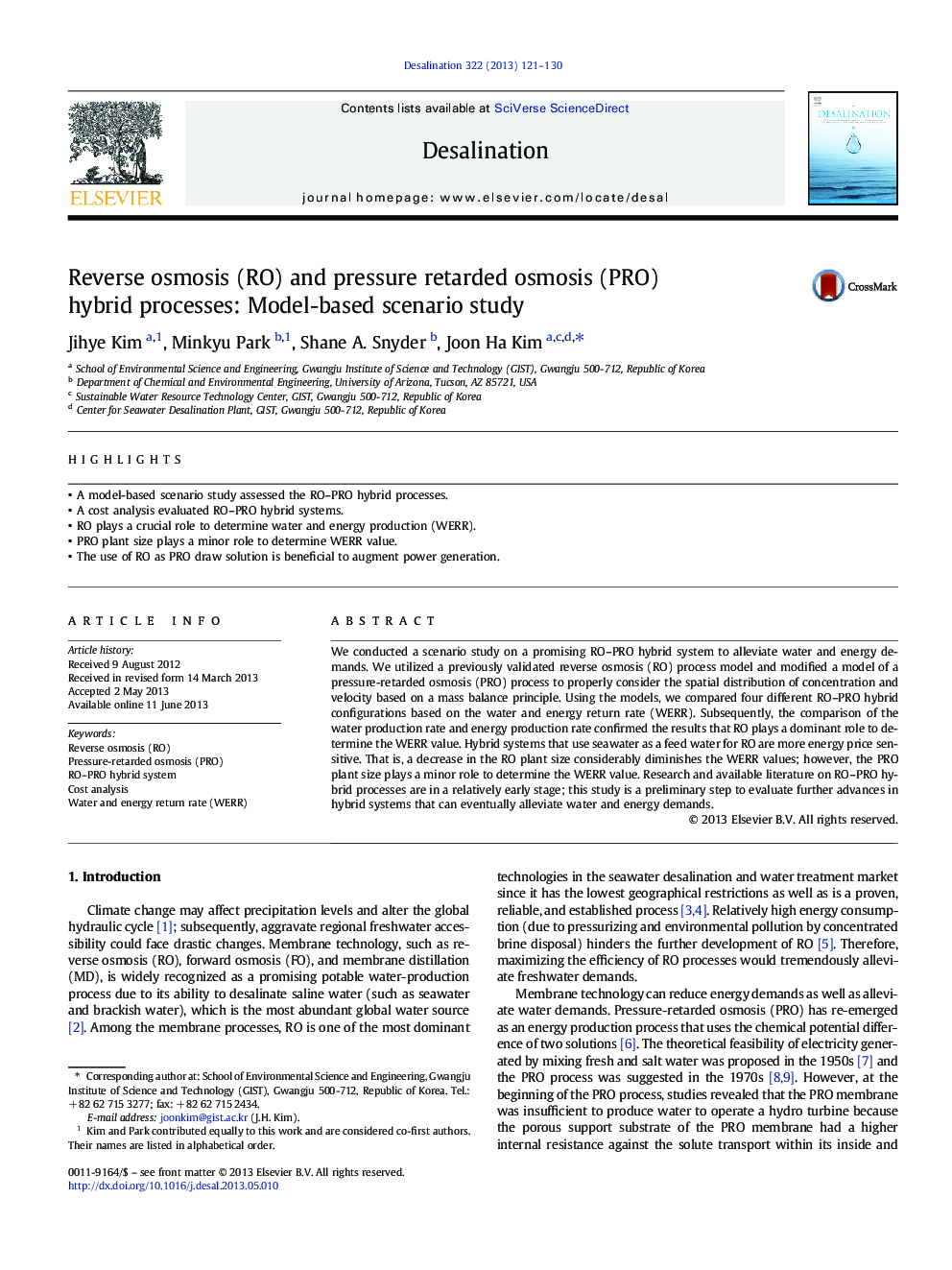| Article ID | Journal | Published Year | Pages | File Type |
|---|---|---|---|---|
| 623998 | Desalination | 2013 | 10 Pages |
Abstract
We conducted a scenario study on a promising RO-PRO hybrid system to alleviate water and energy demands. We utilized a previously validated reverse osmosis (RO) process model and modified a model of a pressure-retarded osmosis (PRO) process to properly consider the spatial distribution of concentration and velocity based on a mass balance principle. Using the models, we compared four different RO-PRO hybrid configurations based on the water and energy return rate (WERR). Subsequently, the comparison of the water production rate and energy production rate confirmed the results that RO plays a dominant role to determine the WERR value. Hybrid systems that use seawater as a feed water for RO are more energy price sensitive. That is, a decrease in the RO plant size considerably diminishes the WERR values; however, the PRO plant size plays a minor role to determine the WERR value. Research and available literature on RO-PRO hybrid processes are in a relatively early stage; this study is a preliminary step to evaluate further advances in hybrid systems that can eventually alleviate water and energy demands.
Keywords
Related Topics
Physical Sciences and Engineering
Chemical Engineering
Filtration and Separation
Authors
Jihye Kim, Minkyu Park, Shane A. Snyder, Joon Ha Kim,
